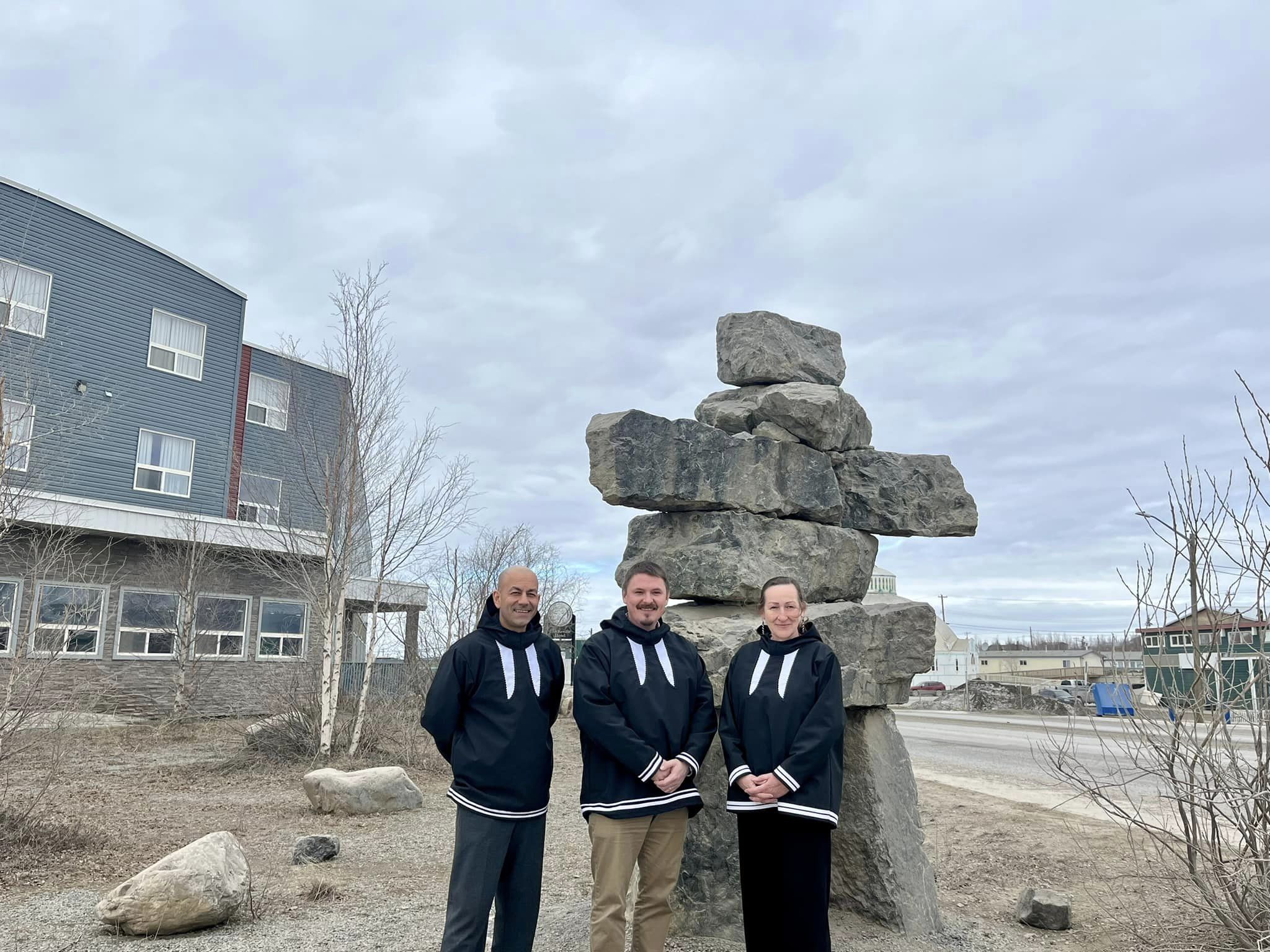Northern premiers talk Arctic sovereignty and security at annual forum
Climate change and its effect on global security also major concern at meetings

Canada’s territorial leaders say they want a greater role in issues such as climate change mitigation and Arctic sovereignty.
At their annual Northern Premiers Forum, which wrapped up in Inuvik, N.W.T., Wednesday, they also discussed the mining of critical minerals and their role in the future of the Arctic and its people.
Nunavut Premier P.J. Akeeagok noted that on recent visits to Alaska and Greenland he was inspired by the rapid development of new infrastructure.
He said that in Anchorage last year, he saw the “incredible investment” government has made in airstrips, deepsea ports and rail lines.
The majority of Nunavut’s communities remain isolated and only accessible by air or water.
“The lack of investment [from the federal government] is not [only] making the North vulnerable, but Canada vulnerable in the global picture,” Akeeagok said.
“So we’re calling on Canada to really step up and start investing on critical infrastructure that we bring forward as solutions. We’re really hoping to see that shift in terms of those investments coming to the North.”
In a joint communique released after the forum, the premiers noted changing levels of global security as a concern, specifically citing the incursion of Chinese surveillance balloons into Arctic airspace earlier this year.
Northwest Territories Premier Caroline Cochrane noted the Department of National Defence briefed the trio about ongoing upgrades to the critical infrastructure of the defence system for Norad, or the North American Aerospace Defence Command.
Still, she said, the premiers expect more meaningful engagement and teamwork between National Defence, territorial governments and Indigenous leaders as defence policy evolves.
The premiers also see a role for both the federal government and private sector to invest in “dual-use infrastructure,” including clean energy.
Dual-use infrastructure is defence parlance for transportation networks that can be used for both civilian and defence purposes.
“Arctic sovereignty is about making sure that people have the support and the resources so that we can live in the Arctic,” Cochrane said.
In their joint statement, the premiers said, “Norad modernization could be used as a valuable tool for economic reconciliation with Indigenous peoples.”
The premiers also discussed the ever-present threat and financial burden of climate change, noting the ongoing wildfires in the N.W.T. communities of Hay River and Kátł’odeeche First Nation and flooding in Fort McPherson, as recent crises.
For emergency responses to climate change just for this year, “we had to put a $50-million contingency [for flooding] based on what we’ve seen trend for the last number of years,” said Yukon Premier Ranj Pillai.
The premiers called on the federal government to create a “northern-specific tax credit” to bolster existing credits as a response to the operating costs of mineral exploration in the North.
Any resource extraction must ensure Indigenous communities and culture are not harmed, they added.
To that end, the premiers said they want the federal government to work with territorial and Indigenous governments to create regulatory frameworks to ensure their inclusion in “critical mineral opportunities.”
“The ice is receding and we must be prepared,” Akeeagok said.
Located in Iqaluit, Nunavut, Canada, Nunatsiaq News is dedicated to covering affairs in Nunavut and the Nunavik territory of Quebec since 1973. It has been a partner to ABJ and its predecessors since 2016.